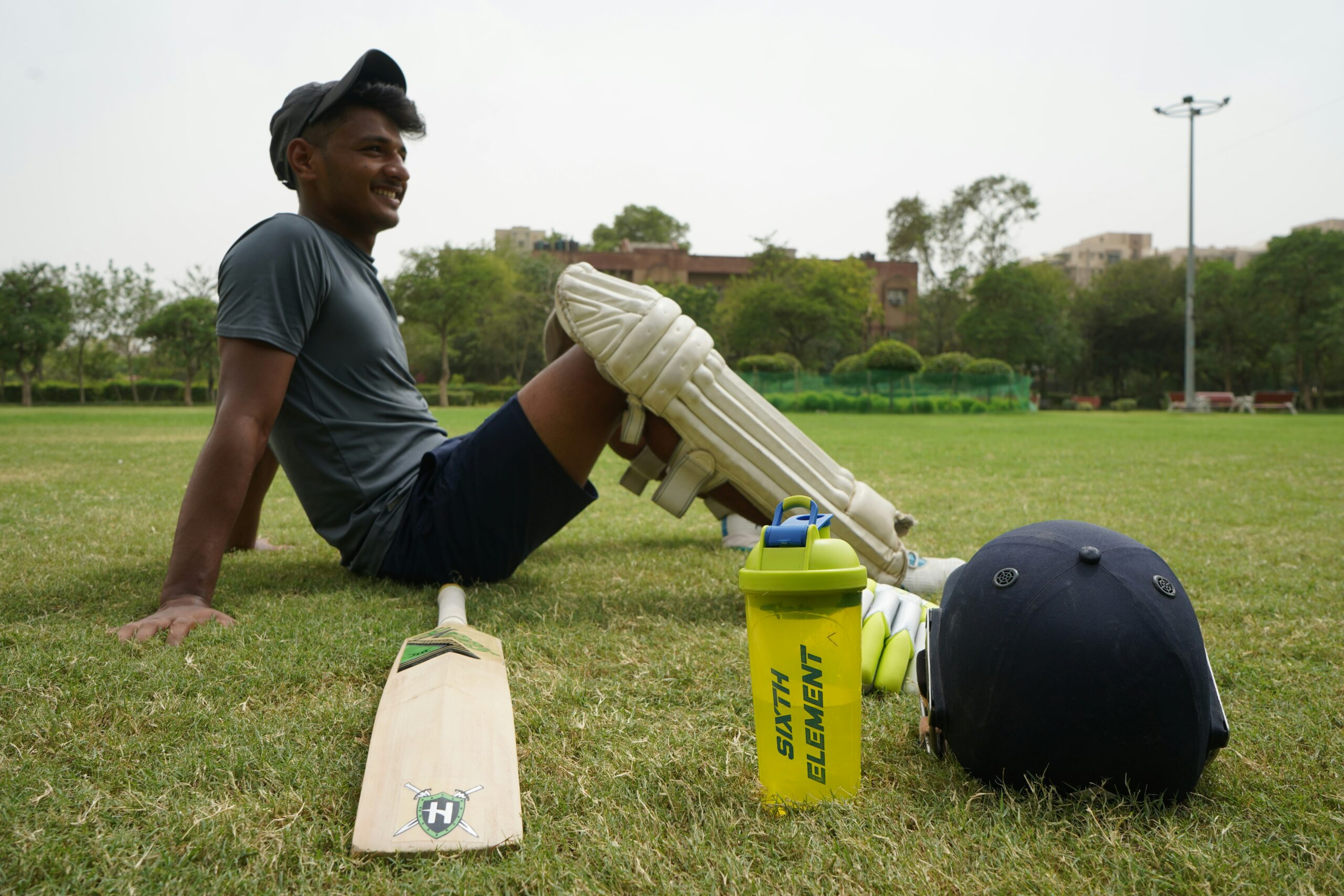Mental Health Matters: The Growing Conversation Around Athletes’ Well-Being
You know, the other day I found myself binge-watching an old documentary about Michael Phelps. I remember being glued to the screen as I watched him glide through the water, shattering records like they were made of glass. But it wasn’t just his incredible talent that caught my attention this time around; it was the candid moments where he discussed his mental health struggles. It got me thinking about how far we’ve come in recognizing that athletes are not just these superhumans with extraordinary physical abilities, but also—surprise!—human beings who face their own trials and tribulations. Who would’ve thought, right? (Cue the collective gasp.)
The conversation around mental health, especially in the realm of sports, has exploded in recent years. We’re not just talking about the occasional press conference where an athlete might mention feeling “a bit off” – no, we’re diving deep into the emotional and psychological challenges that can accompany high-stakes competition. So, let’s unpack this a bit, shall we?
The Shift in Perspective
It’s like we’re living in a time where mental health is finally getting the spotlight it deserves. Years ago, if you mentioned anxiety or depression in the context of sports, people would probably raise an eyebrow and suggest you toughen up (because that’s always the solution, right?). But, thankfully, we’re starting to see a shift. Athletes today are becoming more vocal about their experiences, which is incredibly refreshing. It’s almost like they’re saying, “Hey, I might be a world-class athlete, but I’m also a person who sometimes feels overwhelmed.” And it’s about time!
I mean, can you imagine the pressure these athletes face? They’re expected to perform at peak levels, day in and day out, while being scrutinized by fans, coaches, and the media. It’s a recipe for stress, anxiety, and, let’s be honest, a whole lot of pressure. I once read somewhere that athletes are like high-performance cars—sure, they can go fast, but even the best machines need maintenance. And what happens if you neglect the maintenance? Well, things can start to fall apart.
High-Profile Advocates
Take, for instance, the likes of Naomi Osaka and Kevin Love. They’ve stepped into the arena, not just to compete but to advocate for mental health awareness. Osaka pulled out of the French Open in 2021 to prioritize her mental well-being—an act that had the whole sports world buzzing. Instead of facing the media, she took a stand for herself, and in doing so, she shone a light on the importance of mental health in sports. I remember thinking, “Wow, that’s bold.” It’s like she turned the spotlight around and aimed it at an issue that needs more attention.
And then there’s Kevin Love, who opened up about his panic attacks during a game. Can you imagine being in the middle of a crucial play and feeling like the walls are closing in? Talk about a nightmare! Love’s honesty not only sparked conversations but also encouraged countless others to seek help and talk about their own struggles. It’s a ripple effect, really. When one person shares their story, it can empower others to share theirs.
Breaking Down the Stigma
Let’s be real for a second: the stigma surrounding mental health is still very much alive, even in 2023. But the walls are slowly crumbling. Athletes are starting to realize that they don’t have to wear a mask of toughness all the time. They can be vulnerable and still be champions. It’s like when you’re at a party, and one person starts sharing an embarrassing story—suddenly, everyone’s laughing and sharing their own. Vulnerability can be contagious, and it’s a beautiful thing.
But it’s not just the athletes who need to change their mindset. Fans, coaches, and sports organizations have a role to play too. Imagine a world where mental health is prioritized just as much as physical training. Where it’s as normal to check in on an athlete’s mental well-being as it is to discuss their game stats. I’d like to think we’re inching closer to that reality.
Resources and Support Systems
Now, let’s chat about resources. There are professional athletes who have access to mental health professionals, but what about the younger athletes just starting their journeys? That’s where the conversation becomes even more crucial. Schools and sports organizations need to prioritize mental health resources, offering workshops, counseling, and support groups. It’s like building a solid foundation for a house. If the foundation is shaky, everything else is at risk.
And let’s not forget about the role of technology. Mobile apps, online therapy, and virtual support groups are becoming more popular, especially among younger athletes. With the world at their fingertips, athletes can access mental health resources right from their phones. It’s a game-changer in breaking down barriers and making help more accessible. Who knew that a little screen time could lead to a healthier mind?
The Role of Coaches and Mentors
I’ve often wondered about the influence coaches have on their athletes’ mental health. A coach can make or break an athlete’s experience. I mean, think about it: a supportive coach can be like a guiding light, while a negative coach can feel like a black hole sucking the joy out of the sport. It’s vital for coaches to foster an environment where athletes feel safe to express their feelings without fear of judgment. After all, a happy athlete is a productive athlete.
Some organizations have begun training coaches to recognize signs of mental health struggles and how to respond appropriately. This is huge! It’s about creating a culture of care, where mental health is integrated into training programs. Imagine if every coach made it a priority to check in on their athlete’s mental well-being—how cool would that be? It’d be like having a personal cheerleader who not only cares about your performance but your overall happiness too!
From the Grassroots to the Pros
It’s also essential to address mental health at the grassroots level. Young athletes often face immense pressure to succeed from a young age, and we need to ensure they have the tools to cope. I remember playing youth soccer, and the pressure to win felt like a ton of bricks on my shoulders. It’s important to teach young athletes that it’s okay to lose and that their worth isn’t tied to their performance. They should be encouraged to enjoy the game, not just chase trophies.
Programs that integrate mental health education into sports training can help equip young athletes with the skills they need to navigate the ups and downs of competition. It’s all about building resilience from the ground up. After all, life isn’t just about winning; it’s about learning, growing, and sometimes, gracefully accepting defeat (even if it stings a little).
What the Future Holds
As we look to the future, I can’t help but feel hopeful about the evolution of mental health conversations in sports. With more athletes stepping up, more organizations prioritizing mental well-being, and a generation of young athletes who are more aware than ever, we might be on the brink of a major cultural shift. I mean, picture a world where athletes feel free to share their experiences, seek help when needed, and know that their worth goes beyond the scoreboard. That’s a world I’d like to live in!
But it’s not all sunshine and rainbows. There’s still work to be done. We need to continue advocating for mental health resources, breaking down stigmas, and fostering environments where athletes feel safe to express their feelings. It’s a journey, and every step counts. Honestly, I think every small conversation, every brave confession, can lead to significant change.
In Conclusion
So here we are, in a world where mental health is finally being recognized as a crucial aspect of athletic performance and overall well-being. Athletes are more than just their stats—they’re people with feelings, struggles, and triumphs. And as we continue to champion this conversation, let’s remember that it’s okay to not be okay. Whether you’re on the field, in the pool, or sitting at home cheering from the couch (no judgment here), prioritizing mental health is key. So, the next time you’re watching your favorite athlete compete, maybe take a moment to think about the pressures they face and the importance of their mental health. Because, in the grand scheme of things, mental health matters just as much—if not more—than any victory. And that’s a win for everyone.
Now, if you’ll excuse me, I think I’ll go watch another sports documentary. Because let’s be honest, who doesn’t love a good underdog story? (Or maybe I’ll just stick to my couch and snack on popcorn—priorities, right?)







